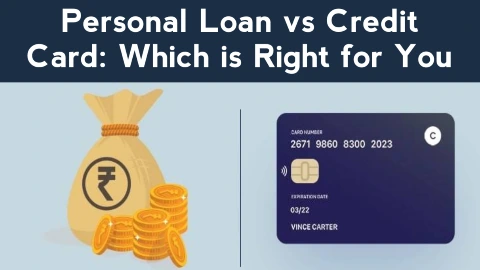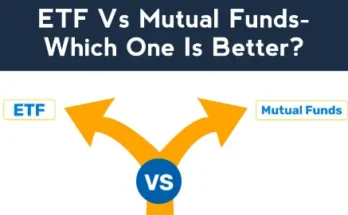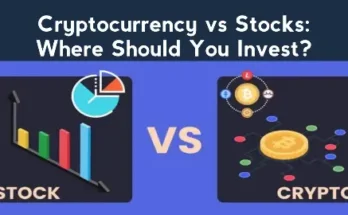Money problems happen to everyone sometimes. You might need cash for an emergency or a big purchase. Maybe you are planning a wedding or want to renovate your home. In such cases, two popular options are personal loans and credit cards. But which one is better for you? Let’s break it down in simple words.
What is a Personal Loan
A personal loan is a fixed amount of money you borrow from a bank or lender. You have to pay it back in monthly installments with interest. It is usually used for big expenses like medical bills, home renovation, debt consolidation, or even starting a small business. The good thing about personal loans is that they come with a fixed interest rate and a fixed repayment time.
What is a Credit Card
A credit card is like a small loan you can use anytime. You have a spending limit, and you can use it to buy things online or in stores. If you pay back the full amount before the due date, you don’t have to pay interest. But if you don’t pay the full amount, then the bank charges you interest, which can be very high. Credit cards are good for small purchases or emergencies when you don’t have cash on hand.
Comparing Personal Loan and Credit Card
1. How Much Money Can You Borrow
With a personal loan, you can get a large amount of money. It usually starts from ₹50,000 and can go up to ₹50 lakh depending on your credit score and income. On the other hand, a credit card has a limit, which is usually lower than a personal loan. Most credit cards have a limit of ₹50,000 to ₹5 lakh. Some premium cards may have higher limits, but they are not for everyone.
2. Interest Rates
Interest rates are very important because they decide how much extra money you will pay to the bank. Personal loans usually have lower interest rates than credit cards. They range from 10% to 24% per year. Credit cards, on the other hand, have a very high interest rate, which can go up to 40% per year. If you don’t pay your credit card bill on time, you will end up paying a lot more.
3. Repayment Terms
A personal loan has a fixed repayment period. It can be from 1 year to 5 years. You have to pay a fixed EMI every month. Credit cards don’t have a fixed repayment time. You have to pay at least the minimum amount every month, but if you don’t pay the full bill, the remaining amount will keep increasing with high interest.
4. Flexibility
Credit cards are more flexible because you can use them anytime for any amount within your limit. A personal loan is a one-time loan. You get the money in one go, and then you have to start repaying it. You cannot keep borrowing from it like a credit card.
5. Fees and Charges
Both personal loans and credit cards come with fees, but credit cards have more hidden charges. Personal loans have processing fees, which are usually 1% to 3% of the loan amount. They may also have prepayment charges if you want to close the loan early. Credit cards have late payment fees, cash withdrawal charges, and annual fees.
6. Credit Score Impact
Both personal loans and credit cards affect your credit score. A personal loan can improve your credit score if you pay EMIs on time. A credit card can also improve your score if you pay the full bill before the due date. But if you miss payments on a credit card, it can hurt your score more because of the high interest and revolving debt.
Which One Should You Choose
It depends on your needs. If you need a large amount of money for a planned expense and want fixed payments, a personal loan is better because of lower interest rates and fixed EMIs. If you need money for short-term use and can repay it quickly, then a credit card is better because it gives you instant access to funds without the need for approval.
If you are someone who struggles with discipline in paying bills on time, a personal loan is safer. A credit card can lead to high debt if not used properly. On the other hand, if you are confident that you can pay off the full amount every month, a credit card gives you more flexibility and rewards.
When to Use a Personal Loan
- For big expenses like home renovation or buying expensive gadgets.
- If you want lower interest rates.
- When you need a fixed repayment plan to manage your finances.
- For debt consolidation if you have multiple loans or credit card bills.
When to Use a Credit Card
- For everyday purchases like groceries, online shopping, or travel bookings.
- If you can pay back the full amount every month.
- When you want to earn rewards, cashback, or travel points.
- For emergencies where you need instant money but not a large amount.
Final Thoughts
Both personal loans and credit cards have their pros and cons. If you are not sure about your repayment ability, a personal loan is a safer option because of its lower interest and fixed EMIs. But if you are responsible with your spending and can pay back quickly, a credit card can be a smart tool for managing expenses and earning rewards.
Before choosing either option, always compare interest rates, fees, and repayment terms. Read the fine print and understand all charges to avoid surprises. Remember, borrowing money is easy, but repaying it on time is what matters the most.



